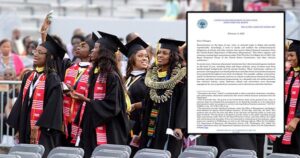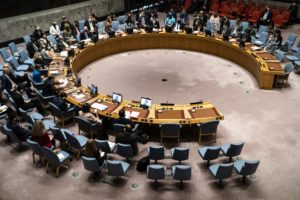All struggles against oppression have participants whose valor does not receive the recognition it deserves. Dennis Goldberg, who died in Cape Town last month at the age of 87, was one of the unsung heroes of the long struggle against South Africa’s malevolent apartheid regime. He paid a heavy price for his resistance to racist tyranny, spending 22 years in jail and then many years in exile until the anti-apartheid movement finally triumphed, led by his close friend and co-defendant in their trial, Nelson Mandela.ADVERTISING
A white man from a Jewish family who emigrated to South Africa in the 1930s, Goldberg was an unlikely recruit to the African National Congress and the frontline of the struggle against apartheid, and even less likely to be part of the armed struggle. However, he was brought up on values of fairness, justice and equality. His parents were working-class communists from London’s East End who left for Cape Town at a time when fascism was on the rise in Europe and causing trouble in their own neighborhood. In those early formative years Goldberg’s outlook on the world developed. That world, of unspeakable Nazi genocidal racism and xenophobia in Europe, and discrimination against black people in the country of his birth, conflicted with the core values of his family, who were welcoming to everyone regardless of race, religion or sex.
What is remarkable about people like Dennis Theodore Goldberg, in common with other notable revolutionaries, freedom fighters and human rights activists who have devoted their lives to bring about change, is that in many instances they enjoyed a comfortable and privileged early life, but their upbringing, morals and personality led them to reject the usual benefits of such a life. Instead Goldberg, and his future wife Esme Bodenstein, who he met while studying civil engineering at the University of Cape Town, became members of the Modern Youth Society — which, since it was not segregated, was rather a novelty, and an unpopular one. This was the beginning of his social and political activism that was to attract the inevitable unwelcome attention of the notoriously unforgiving South African security forces. In an interview in which he reflected on life in the frontline against apartheid, he described his heroes as those people who said “they’re not going to live under the absurd system of racism of the Nazis and were prepared to risk their lives. I think that was the biggest influence on my life, that if I was called on, I would have to do something.”
A white man from a Jewish family who emigrated to South Africa in the 1930s, Goldberg was an unlikely recruit to the African National Congress and the frontline of the struggle against apartheid.
Yossi Mekelberg
Supporting black South Africans against apartheid was his cause, a cause for which he was ready to sacrifice his freedom and even his life if necessary; and indeed, he came within touching distance of being sentenced to death. In joining the ANC’s armed wing in 1961, Goldberg was aware of the grave risk he was taking, considering that the apartheid regime was increasingly turning violently oppressive against any sign of opposition. And his arrest in 1963, at a clandestine meeting in a Johannesburg suburb with several others including Mandela, Walter Sisulu, Raymond Mhlaba and Govan Mbeki, was the prelude to a long trial and many years of incarceration, most of it in solitary confinement. In the notoriously fixed 1964 Rivonia trial, Goldberg was convicted of sabotaging utility installations, charges that he and his co-defendants never denied, and sentenced to life imprisonment after the judge declined to impose the death sentence. Being white, Goldberg was not sent to the notorious Robben Island prison along with black political prisoners such as Mandela, in keeping with the apartheid regime’s distorted philosophy that the country’s different “races” should not mix. Despite separating him for more than 20 years from his anti-apartheid comrades, the regime could not crush his spirit or his convictions, even by forcing him to spend most of the time in solitary confinement.
When he was finally released from jail in 1985, his commitment to the cause of defeating apartheid had not diminished one iota. After a short time with his daughter’s family on a kibbutz in Israel, he left for London, for family reasons, but also knowing that there he would be better placed to continue the struggle by other means, those of diplomacy and mobilizing public opinion against the evils of the apartheid regime. When events within South Africa, combined with international pressure, led to the release of Mandela from jail and soon afterwards to the end of white rule, the establishment of democracy and the emergence of the “rainbow nation,” Goldberg did not seek to be rewarded with a fancy position in government, but continued his charity work promoting education and culture, which spoke volumes about his character. It also left him with the freedom to criticise the corruption that was spreading under and within the ANC, especially during the presidency of Jacob Zuma. Apartheid ended, governments changed, but the values that guided Goldberg all his life — the need for accountable governments who serve their people with integrity and honesty — remained with him until the very end.
Goldberg’s heroism can be summarised in his own words: “I did what I believed was necessary. And it was necessary.” He contributed to one of the most heroic, necessary and successful freedom and equality struggles of the 20th century, giving up a promising career in engineering for a simple reason, but a most honorable one: So that other human beings could enjoy the same human and political rights that he had. He deeply believed in this cause, one that required proactive intervention and not just intellectual debate while waiting for others to do the right thing. He answered the call to arms because it was necessary. This is Dennis Goldberg’s legacy to all those who witness injustice, from the smallest to the most harrowing. Above all, he lived his life in the spirit of one of Mandela’s favorite mottos: “To be free is not merely to cast off one’s chains, but to live in a way that respects and enhances the freedom of others.”
- Yossi Mekelberg is professor of international relations at Regent’s University London, where he is head of the International Relations and Social Sciences Program. He is also an associate fellow of the MENA Program at Chatham House. He is a regular contributor to the international written and electronic media. Twitter: @YMekelberg
Disclaimer: Views expressed by writers in this section are their own and do not necessarily reflect Arab News’ point-of-view



